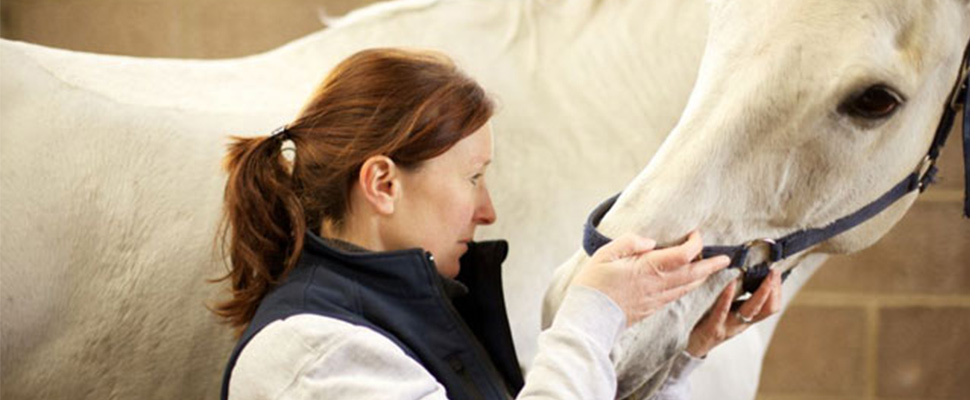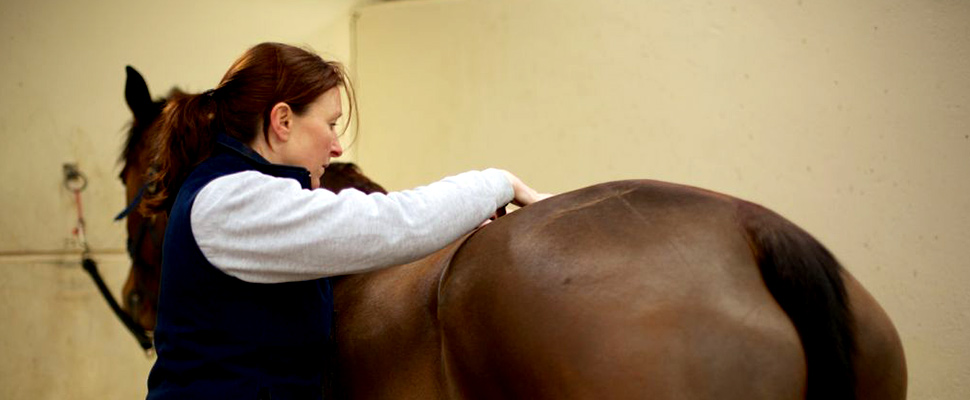How do I know if my horse needs treatment?
Clients get their horses checked and treated by Jess for a variety of reasons. Sometimes it is a sudden deterioration in performance: sometimes it is a pre or post competition 'tune up'; sometimes the horse has had a slip or fall and the owner would like to check that everything is ok (assuming their vet is happy there isn't a problem that needs veterinary attention); sometimes it is a 'maintenance' visit to ensure that any small musculoskeletal issues that may not be apparent yet are dealt with before they start to affect the way the horse is moving.
Obviously it is important that owners speak to their vets if they have any concerns about their horse, and by law any practitioner who is not a vet needs veterinary permission before they are able to treat your horse (or any other animal).
Symptoms that may respond to a treatment include:
-
An asymmetry in movement such as a reluctance to strike off on one lead in canter, changing leads behind, or stiffness in one rein
-
An unexplained deterioration in performance or unexpected change in behaviour
-
Uneven muscle development or muscle atrophy
-
A reluctance to work, or to carry out specific movements e.g. Stopping whilst jumping, or difficulty in carrying out lateral movements in dressage
-
An odd, irregular gait; dragging of one or more limbs; or stumbling which has not been rectified by a veterinary examination
-
Loss of impulsion; difficulty in engaging the hindquarters; or an inability to track up
-
Reoccurrence of symptoms previously successfully treated by McTimoney physical therapy or sports massage
-
Grumpiness when being tacked up, or being cold backed
-
Uneven wear of shoes
-
The appearance of a head tilt or head shaking
-
Unwillingness to work up or down hills
Any of the above symptoms may signify that your horse would benefit from a treatment. Remember to always check with your vet first.



